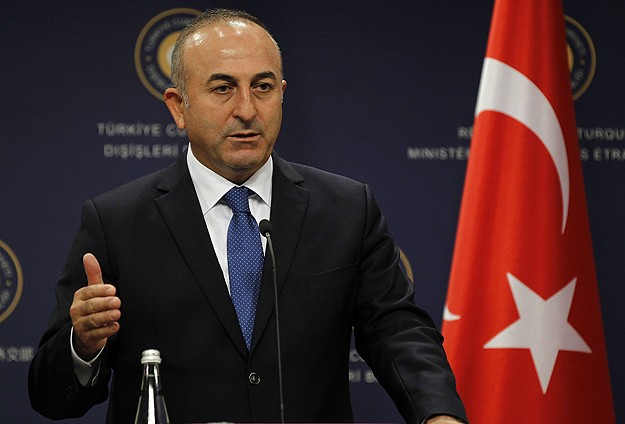Turkey's Foreign Minister Mevlut Cavusoglu said his country does not recognize the de facto situation in Crimea, Anadolu Agency reported.
Cavusoglu made his comments at the 21st Organization for Security and Cooperation, or OSCE, Ministerial Council meeting in Basel.
"Turkey believes that the solution to the crisis in and around Ukraine should be a negotiated political settlement respecting the independence, sovereignty, political unity and territorial integrity of Ukraine," he said.
More than 4,000 people have been killed and around 9,000 wounded in the conflict between the Ukrainian government and pro-Russian separatists in eastern Ukraine since mid-April, according to a UN report.
The conflict has also caused massive damage to infrastructure which, the Ukrainian government said in September, will cost around $800 million to restore.
"We also do not recognize the de facto situation in Crimea," Cavusoglu added. "The crisis in Ukraine has undermined European security and challenged its basic principles."
A referendum on the status of Crimea was held on March 16, 2014. A majority of the Crimean population voted to become part of the Russian Federation. The U.S. and EU denounced the referendum as illegitimate, as the region was occupied by Russian soldiers at the time.
According to Turkey's Foreign Ministry, there are 280,000 Crimean Tatars in the autonomous Republic of Crimea, which constitutes close to 13 percent of the total population.
The foreign minister also highlighted OSCE's activity, saying that the crisis in and around Ukraine underlined the organization's relevance in an environment increasingly characterized by risks and challenges.
"The OSCE has proven its importance in our common quest for security, stability and the rule of law in our expansive region," he said. "A way out of this deadlock goes through the development of a new culture of engagement, a new methodology and a new operational modality that will enable us to make best use of this exceptional platform."






